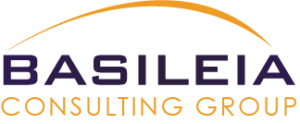Cloud computing is a crucial component of organizations in the current digital era since it allows them to store and access their data anywhere. But convenience also increases the possibility of data leaks and assaults. Consequently, it is essential to implement best practices for data protection in cloud services.
Executives increasingly must weigh the advantages of productivity increases against major worries about compliance and security as businesses migrate their programs and data to the Cloud.
The Cloud’s security level differs from that of a company’s data center. Different principles and ways of thinking are required when protecting an infrastructure over which one has no absolute physical control.
No executive ever wants to face the myriad ramifications of a data breach.
Here are 11 security measures you can take to secure your data in the Cloud:
Select a reputable cloud service provider
The first step in data security is picking a trustworthy cloud service provider. The supplier should provide access restrictions, encryption, and safe data storage. Seek service providers who adhere to pertinent security rules and standards. Microsoft Cloud is a reliable option for clients because of its numerous certifications.
Recognize your security obligations
Comprehending who protects your data when you shift it to cloud services is critical. The cloud provider typically secures the infrastructure, and the customer is generally responsible for safeguarding the data on that infrastructure. Make sure you are aware of your duties and are taking the required precautions to protect your data.
As clients move their applications to cloud services, responsibility passes from the customer to the cloud provider. While clients remain fully responsible for maintaining the environment on-premises, the cloud provider increasingly assumes more of those duties as they switch to cloud services. However, the customer is always responsible for managing and securing data, devices, and identities.
Employ reliable authentication
The first line of protection against unauthorized access is a password, but we are all aware that passwords can be lost, exploited, or stolen. The danger of unwanted data access can be considerably decreased using robust authentication techniques, such as multi-factor authentication. Before accessing the cloud environment, multi-factor authentication requires users to submit various means of authentication, such as a password and a code given to a mobile app. However, passwordless technology, like facial recognition, fingerprints, or mobile apps, offers the most robust defense and allows you to lessen the chance of password theft.
Use encryption
A crucial part of cloud security is encryption. Data must be encoded so that only authorized users can access it. Protect sensitive data from illegal access and breaches by using encryption for data in transit and at rest. Data is permanently secured in the Microsoft Cloud, whether at rest, traveling, or in use.
Protect data, whether it’s static or on the move
The most significant issue currently facing organizations is locating their sensitive data. Organizations require tools to assist them in finding this data because more than 80% of business data is “dark.” Simply locating this data is insufficient. Organizations must be aware of its risk and take steps to protect it using encryption, access controls, and visual markers.
Additionally, organizations experience accidental or deliberate data loss. Controls must be in place to prevent unauthorized individuals from accessing sensitive data, recognizing and blocking dangerous or inappropriate sharing, transfer, or usage of sensitive information across Cloud, apps, and endpoint devices aids in preventing data loss.
People transfer data; it does not move itself. Because of this, the key to preventing data loss is understanding the user context and intent underlying data migration. You can find and mitigate the most critical data security risks surrounding your data using built-in, ready-to-use machine learning models provided.
Additionally, businesses can automatically adjust the proper data loss prevention controls based on a user’s risk level, ensuring that only high-risk users are subject to the most effective policy – such as blocking data sharing – while low-risk users can continue working productively.
Put access control in place
Limiting access to sensitive data in cloud services can be achieved by implementing access controls. The principle of least privilege, which states that users should only have the access necessary to complete their duties, should serve as the foundation for access controls.
Users can be assigned roles and permissions depending on the responsibilities of their jobs using role-based access control.
Keep an eye on cloud activity and understand your security posture
Monitoring cloud activity can assist in identifying and preventing unwanted data access. Cloud service providers provide monitoring services and inform administrators of suspicious activity. Reviewing audit trails and logs from the Cloud may assist in spotting potential security risks.
Products like Microsoft Sentinel, the company’s cloud-native, AI-enhanced security information, and event management, can detect sophisticated attacks and automate reactions. In multi-cloud systems, it is a central center for tracking attacker movement across vectors.
Employ safe APIs
Use adequately secured APIs to access cloud services; otherwise, they may be subject to attacks. You can prevent unwanted access to cloud services by securing APIs with robust authentication and encryption.
Conduct routine security evaluations
Regular security evaluations aid in locating security flaws and determining the efficiency of security precautions. Periodic security evaluations might be carried out internally or by outside security professionals.
Educate your staff
Ensure your staff has received training on the best practices for data security and is aware of the security concerns connected with storing data in cloud services. Include regular security awareness training and reporting procedures.
Adopt zero-trust principles
A popular security tactic is called “Zero Trust.” It is an approach to designing and implementing the following security principles but is not a product or service.
- Verify specifically: Authenticate and authorize consistently depending on all accessible data points
- Restrict user access using Just-In-Time and Just-Enough-Access (JIT/JEA), risk-based adaptive rules, and data protection
- Assume a breach: reduce blast radius and segment access
Adopt a Zero Trust policy across your entire digital estate, acting as an integrated security tenet and end-to-end plan. The six fundamental components of identity, endpoints, data, apps, infrastructure, and network are put into place to achieve this by applying Zero Trust rules and technologies.
Conclusion
Businesses must secure data in cloud services to safeguard sensitive data from unwanted access and breaches. The cornerstone for protecting data in cloud services is end-to-end security architecture and implementation.
When you partner with the Basileia team, you can be confident that your Cloud data is protected and you’re always up-to-date on any security alerts. That means peace of mind 24/7 – for you and your customers.
Ready to Learn More
Basileia’s innovator team has extensive experience implementing security solutions that protect your data, customers, and reputation.
If you’re ready to upgrade your security to the next level, contact Basileia Consulting Group (BCG) by calling 949-329-3524 or via our contact form. Our expert team can evaluate your needs and requirements and recommend the best security solution for your company.
Related Reading
Security is Your #1 Profit Protector – Are You Protected?
Why robust security solutions are critical to privacy protection
About the Author
Basileia Consulting Group assists other ERP software resellers and consultants with challenging implementations. To better ensure the successful adoption of ERP software across the entire company, we expanded the scope of our service offering eight years ago to include the complete suite of Microsoft business tools. We have established a name for ourselves in the industry as the people your software partner should contact whenever things go wrong.




